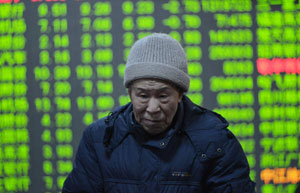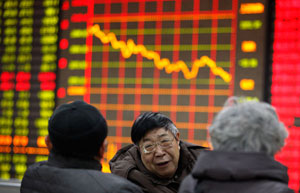Shanghai seeks new board for innovative industries
By XIE YU in Shanghai (chinadaily.com.cn) Updated: 2014-03-25 16:18The Shanghai Stock Exchange is trying to set up a new board to attract domestic high-growth innovative enterprises, general manager of the bourse, Huang Hongyuan, said in a statement provided to China Daily on Tuesday.
Global experience proves that the nurturing and growth of emerging industries depends on support from capital markets. However, the framework and system design of China’s capital market mainly considers features of traditional industries, and is not flexible enough for emerging industries, Huang said in the statement provided by the SSE.
"That explains why in the past decade, a great number of companies from sectors including Internet technology, new energy and bio-medicine went overseas to seek listing," he added.
The SSE is trying to tailor a "strategic emerging enterprise board" to cater to innovative companies at home. Huang said with the rapid development of strategic emerging industries, blue chip stocks no longer include only big manufacturing companies, financial giants or energy tycoons, but companies engaged in IT, media and culture, energy saving and environmental protection are becoming the new generation blue chips.
The new board would adopt different listing criteria to enable more innovative companies to go public in Shanghai. For example, Xiaomi, which has a short business record but strong earning capacity, and JD.com and Sina Weibo, with relatively weak cash flow and profitability but innovative business models, as well as the Commercial Aircraft Corporation of China, with no profit record so far but a large amount of assets and promising prospects, should all have access to the new board.
The SSE, established in 1990, is where most Chinese blue-chip companies are listed and one of two stock exchanges in the Chinese mainland. As of the end of 2013, there were 953 listed companies on the exchange.
 |
 |
| China's CSI300 index in biggest loss in 7 months |
- NHTSA says finds no 'defect trend' in Tesla Model S sedans
- WTO rare earth ruling is unfair
- Amway says 2014 China sales may grow 8%
- President Xi in Europe: Forging deals, boosting business
- CNOOC releases 2013 sustainability report
- Local production by Chery Jaguar Land Rover this year
- Car lovers test their need for speed in BMW Mission 3
- China stocks close mixed Monday

















